A Meditation on Luke 13:10-17 and Isaiah 58:9b-14 The Gospel Reading for the Fourteenth Sunday after Pentecost – Luke 13:10-17 – shows Jesus facing more questions and opposition, this time for setting free from bondage, "a daughter of Abraham whom Satan bound for eighteen long years".In the last meditation the opposition was rather general: By what authority was the question. Here the issue is the Sabbath. This story appears in Luke only – not in John or the other synoptic Gospels. Since his audience was primarily Gentile, the fuss about the Sabbath would have made no sense to non-Jews. Thus, he concludes his story with the observation that Jesus' opponents were put to shame; and the entire crowd was rejoicing at all the wonderful things that he was doing". Indeed, that may well have been so for Gentiles. On the other hand, the First Reading – Isaiah 58:9b-14 – was familiar to Jews, and there it says: "If you refrain from trampling the Sabbath, from pursuing your own interests on my holy day; if you call the Sabbath a delight and the holy day of the Lord honorable; if you honor it, not going your own ways, serving your own interests, or pursuing your own affairs; then you shall take delight in the Lord..." Isaiah's text is about removing the yoke, and a continuation of last meditation's debilitating question : By what authority? For him, not "pointing of the finger", not "speaking of evil", offering "your food to the hungry and satisfying the needs of the afflicted" is what it means to remove the yoke. Simply put, this is service to and on behalf of others. That is precisely what Jesus does in the Gospel – setting free one who had been in bondage for eighteen years. The issue of contention is that he did it on the Sabbath! Nevertheless, even Isaiah clearly points out that the Sabbath should be "a delight" as opposed to a yoke, or means of continued bondage. It is being set free from any and all encumbrances that hold one in bondage. The good things and blessings of life should be liberating not limiting and debilitating. Think of the Church or the Faith Community. It ought to be liberating not a yoke. It ought to be a vehicle of setting free the sons and daughters of Abraham who have been in bondage for too long. It is not for "pointing fingers", or gossip and murmurings or "speaking evil".
BY WHAT AUTHORITY?
A meditation on Mark 11:27-33
Jews answer a question with a question. It is an ethnic technique common in
Rabbinic Literature (for example in the Talmud). All the four Gospels provide
ample examples (as many as 30) where Jesus answered questions with questions. This text is one of those examples.
Let's begin with a question: What things? Jesus was asked a question: "By
what authority are you doing these things?" At the end of the text Jesus
answered (or said, really, because he did not answer the question) but said:
"Neither will I tell you by what authority I am doing these things.
What things? Previous to this text, there is the story of Jesus cursing a fig
tree because it did not have fruits, then smashing money counters in the temple
and chasing away money changers. (By the way, money changing is still a very
lucrative business in Jerusalem today). Are these the things he is being
questioned about? May be! And as the Jews would say, there is a high
probability of this possibility!
Elsewhere too, Jesus' authority was questioned when he healed or forgave
sins, and perhaps even when he fed the hungry.
So, the purpose of Jesus asking a question for a question, and the principle
behind this whole Jewish ethnic technique is to help one – the questioner –
examine issues critically. The danger is that often, the deepest issues are
passed by while actions are merely superficial.
Let me give an example for illustration: Last week, in a small discussion
group, we watched a video of a pastor illustrating how listening to God's – what
he called - whispers is often discomforting, challenging and even involves taking risks. He talked about his church, how they experienced expansion and attracting diversity. That was very good and certainly in accordance with what God would desire.
Before long, they started a special ministry to serve an increasing Hispanic
membership in the congregation. Then, lo and behold, they were facing a deep
issue: Most of the growing Hispanic membership was what is known as
undocumented, aliens, illegal immigrants... Some in the congregation started
asking: What shall we do? By what authority are we doing these things?
God's commands regarding the stranger, the poor, the widow, the orphan –
without qualification – is very clear. Jesus' examples are equally very clear.
So the church was led into looking critically at the larger immigration
issue.
The major part of the so-called broken system that resulted in 11 million
"illegal immigrants" is in the question: By what authority? Often
the question is debilitating, causing inaction or at best simply looking at
issues on the surface only.
The following statements from the scripture readings for the Thirteenth Sunday after Pentecost, provide important reference points or compass for meditation. Even before the scriptures, the Collect affirms Jesus Christ as "an example of godly life" and goes on to ask for "grace to receive thankfully the fruits of his redeeming work, and to follow daily in the blessed steps of his most holy life". This is from the First Reading (Jeremiah 23:23-29): "Am I a God near by, says the Lord, and not a God far off?...Do I not fill heaven and earth?" The Epistle Reading (Hebrews 11:29-12:2) reminds us that "we are surrounded by so great a cloud of witnesses". Then, Jesus, in the Gospel Reading (Luke 12:49-46) puts forward this challenge: "You know how to interpret the appearance of earth and sky, but why do you not know how to interpret the present time?" That, indeed, is our challenge today: Given what we have seen and experienced, all the knowledge available to us and every kind of invention and discoveries made, do we see God at all as the source? In Jeremiah's time, there were false prophets who – intentionally perhaps – proclaimed falsity with regard to what was happening in their world. So, what is going on in our world, really? (See, How are you;Really) Today we know more about ourselves and our environment than ever before. We are discovering more and more about the universe: we have a rover on Mars, telescopes and satellites in space, all revealing new information everyday – literally, everyday – about our world. We know when hurricanes will strike, we have the technology to forecast most weather conditions and the consequences. Is any of this outside the realm of the Almighty God? "Do I not fill heaven and earth, declares the Lord" (Jer.23:24). The writer of the epistle to the Hebrews shows God's mighty works throughout history. This heading of this Sunday's Psalm 82, in Latin, is Deus stetit. This verb is perfect, indicative, active, meaning he/she stood or has stood; stayed or has stayed; remained or has remained. From the Hebrew, there are various English translations, including, God presides, takes his place, has taken his place – present perfect, or simple present. It is not uncommon that we ask, "where is God" when facing natural disasters or when an individual commits an unthinkable atrocity like the massacre of children or when the innocent endure extreme suffering as some are today, in Egypt, Syria and around the world, or when someone is diagnosed with cancer. Within that question is the desire to know and to be reassured of God's presence. How about those times of success and achievement; those times of discovery and innovation! Indeed, in our own time of advancement in medicine economics, technology and science, do we acknowledge God's involvement in it?
As we continue our reflection on the First Reading for the Twelfth Sunday after Pentecost and the story of Abraham we take note of those who have pointed out that Abraham was indeed rich in possessions when the Lord called him. Often we hold on to the erroneous conviction that possessions give us an assurance about life and the future. This is indeed the opposite of Jesus' teaching in the Gospel Reading for this Sunday (Luke 12:32-40): “For where your treasure is, there your heart will be also”.
Abraham's journey begins in Genesis 12 where “the Lord said to Abram, 'Go from your country and your kindred and your father's house to the land that I will show you”. This is a most uncertain situation. His wealth and possessions could not match this uncertainty. But he trusted the Lord.
In the foreign land he did not know what the future held – at least not from what he had control of, including his possessions. And so he waited, and waited, for God's voice.
My first two years in a parish, after seminary, were exciting and inspiring. Then the honeymoon was over and everything I tried met with opposition. At the same time I had opportunities to go somewhere else. Indeed, the difficulties I faced seemed to me to indicate that the Lord was telling me it was time to move. Yet, a mentor, in a far away land, kept reminding me: “Stay where you are until the Lord tells you to move”.
“Well, excuse me!” I thought, “but the Lord is right now telling me to move”. I was frustrated, angry and questioned God: “How long do you intend to keep me here? Do you even care about my suffering?” As I pointed our previously, Abraham was most probably frustrated by the uncertainty he faced. He most probably was angry at God. And, yes, it is alright because communication with God was open.
When one has nothing to hold on to but trust in God, one feels a lot of burden lifted away. In the poorest countries of the world, the people have nothing they can hold on to materially. They face uncertainty day and night. Their only hope is
God.
With that they find relief and comfort. With that they are joyful.
I want to continue the discussion in the last blog with a close examination
of the First Reading for the Twelfth Sunday after Pentecost – Genesis 12:1-6.
This text is of immense significance for both Jews and Christians. It is an
account of the covenant relationship between God and the Jewish people. We note that Abram "believed the Lord; and the Lord reckoned it to him as
righteousness". In the New Testament, Paul makes a strong argument that
Christians are likewise beneficiaries of God's covenant with Abraham on the
basis of the same faith (Romans 4).
The first thing, though, we want to consider is the back and forth dialogue
between God and Abram. The word of the Lord came to Abram and Abram listened. Then Abram said to the Lord, and the Lord answered. Then the Lord took Abram outside and showed him the heavens and the stars, and said...to Abram.
What is going on here is a relational connection and it takes place in the present, in the moment. It is this relationship that makes it possible for the word of the Lord to come to Abram and for him to listen and hear. Without the relationship this dialogue would not be possible.
The second thing to note is the trust that Abram has in the Lord. Indeed, his
faith is actually trust. He stakes everything he has and empties himself to trust nothing but God. He goes to a foreign land without knowledge of what lies
ahead. He can only trust God. Furthermore, at his old age, and his wife Sarah
barren, he is promised a child. The odds of this eventuality, in human
knowledge, don't exist. He has only God to trust. (The Epistle Reading Hebrews
11 – explains this best).
Abraham can question God; he will not have answers to all his questions; he
can be disappointed with God – even angry at God. There is nothing wrong with
this as long as the two-way communication channel is open. Our faith or trust in
God is not diminished when we raise questions or express disappointment, nor
does God lose faith in us on that account.
There is an important lesson here because often people from rich or wealthy
nations find it difficult to fathom how people in poor countries manage to be
happier and more content in spite of their abject poverty. In the next post I
share my own experience and how happiness and contentment depend on relationship rather than possessions.
In a small discussion group, we have, over the past few days, focused our
attention on "hearing God's voice". This, in turn, has come from our
acknowledgment that God does speak to us and that God desires that we listen.
God, is a communicating God. So, the question has been: Are we
communicating?
Communication is a two-way street, as anyone familiar with any kind of
relationship, will acknowledge. So, is this two-way street open?
Over the past few days, I have therefore, thought seriously about why and how
God keeps God's end of the street open. If I get a grasp of that, it will
facilitate my understanding of why and how I – or we – fail to keep our end
open. I have been amazed by just how many biblical references there are,
pointing to God's desire – even appeal – to get our attention.
I am going to memorize Psalm 50:1: "The mighty one, God the Lord, speaks and summons the earth from the rising of the sun to its setting".
Think about that! God does not tire or quit seeking to speak to us. Then there
is Psalm 95:7b: " that today you would listen to God's voice!". This is repeated in Hebrews 4:7: "Today, if you hear God's voice". Again, it is about now, today, not tomorrow or on Sunday, or after this or that. It is this moment. A similar entreaty is found in Psalm 81:8b which says, "O Israel, if you would but listen to me!".
There are benefits that come out of listening to God's voice. The two
examples above are predicated with "if". From very early in God's relationship
with the people of Israel, in Exodus 15:26, we read: "If you will listen carefully to the voice of the Lord, your God, and do what is right in the Lord's sight, and give heed to the Lord's commandments, ...I will not bring upon you any of the diseases that I brought upon the Egyptians".
Thus, God desires to show us what is right in God's sight. In a world driven
by many and conflicting "truths" we need God's voice to lead us. Even when we
stray, there is hope and consolation, as Deuteronomy 4:30-31 shows: "In your
distress, when all these things have happened to you in time to come, you will
return to the Lord your God and heed the Lord, because your God is a merciful
God, and will neither abandon you nor destroy you..."
We see, therefore, that there is not only direction, but also salvation, in
listening to God's voice.
There is more on this still to come.
The three Synoptic Gospels record the Transfiguration in almost complete agreement with detail. (Matthew 17:1-8; Mark 9:2-9; Luke 9:28-36). Matthew and Mark write that it was six days after Peter's confession at Caesarea Philippi while Luke says it was eight days after. Nevertheless, Peter confessed Jesus to be the Christ and Jesus predicted his own passion and death, then the Transfiguration followed.
Where and when did it happen?
The church observes the Transfiguration on August 6 and tradition places its occurrence on Mt. Tabor in the Jezreel Valley. Though Mt. Tabor is logical because it is a high mountain in the area, some people have argued for Mt. Hermon further north. The view from both heights is picturesque.
Nevertheless, a church was first built on Mt. Tabor in the 4th century and dedicated on August 6. The Eastern Churches have therefore observed August 6 as Transfiguration Day from the 4th century. It wasn't until the 8th century that some Western localities began to observe the day, and Pope Callistus put it on the church calendar in 1456.
Peter's desire to build booths suggests that it was probably during the Feast of Booths – or Tabernacles – Sukkot in Hebrew – that the Transfiguration took place. Nevertheless, what is significant in this event is the revelation of Jesus' divinity, as confirmation of Peter's confession at Caesarea Philippi and Jesus passion and death in affirmation of his humanity.
Yet, we cannot help but ask: What exactly did the three disciples, Peter, Johand James, experience on that mountain top? It must have been frightening and indescribable. Hence, the Sinai experience in Exodus 34:29-35 serves as a powerful illustration. It says there that as Moses "came down from the mountain with the two tablets of the covenant in his hand, Moses did not know that the skin of his face shone because he had been talking to God".
That is the transformation experience in these
two mountain top events: An encounter with the Divine is truly transformative.

A couple of months ago it was reported that Prince Alwaleed bin Talal of Saudi Arabia sued Forbes magazine in a London court for reporting his fortune as $20 billion. According to the prince, that is $9.6 billion less than his actual wealth. Possibly many people found this a laughing matter because most people believe they would be very happy with a billion dollars - or a million – and would not be bothered by whether the extent of their wealth was accurately known or not. I suspect these notions may not be entirely true. This Sunday's scripture readings – The Eleventh Sunday after Pentecost – shed light on common conceptions about abundance. In the Gospel Reading (Luke 12:13-21) Jesus says, "Watch out; be alert against all kinds of greed; for one's life does not consist in the abundance of possessions". Actually, in this statement, Jesus is saying: "Don't be hasty in your assumptions; greed is powerful and multifaceted; abundance and materialism do not, of themselves, translate into a meaningful life" In the First Reading from Ecclesiastes 1:2, 12-14; 2:18-23 the Teacher – or "Preacher", or "Gatherer" - Qohelet, in Hebrew – laments the vanity of all of life's restlessness in pursuit of all that we consider life's goals..The Hebrew word translated "vanity" - "hebel" - literally means vapor; wind; or breath; something without physical form. Metaphorically hebel are things that cannot be understood physically or mentally; hence, they are of no substance. When life is preoccupied with these pursuits, life itself becomes like them - hebel. That is the message of the First Reading and it is the message of the Gospel Reading: Life is more than the hebel that surrounds it. The Epistle Reading (Colossians 3:1-11) frames the message in these words: "Set your minds on things that are above..." Similarly, the psalmist (Psalm 49:1-11) cautions "those who put their trust in their goods, and boast of their great riches". The question that one needs to wrestle with is this: What is driving your
life?
Isaiah 52:7-10
This is one of my favorite passages in the whole Bible. "How beautiful
on/upon the mountains are the feet of those who bring good news..."
The picture Isaiah presents is of a king, or a monarch, a sovereign coming to
town. The town is Zion, Jerusalem, which was devastated and destroyed and the
people carried to exile in Babylon. When the temple was destroyed, the meeting
place for God and His people, God left too. What remained was only
desolation.
And now, we see this picture of God returning to Zion. If you have watched on
TV or seen in real life when a monarch or head of state visits a town, there is
usually a lot of communication that goes on. Messages are relayed –
electronically today – about every move. The crowds that assemble the route pass on information, on twitter or facebook and even take pictures and transmit them to those who are not lucky to be there.
The difference is that those in this passage did not have twitter or facebook. But they positioned themselves on hill tops and mountains where they could see the convoy – or motorcade if you like – below them. They passed on information to those yet to be reached by the sovereign. Essentially, they served as lookouts.
Today too, when the President or Queen of England, visits a town, those along
the route consider themselves lucky and to be part of history. That is why they
convey their experience..
So, in our passage: Who are these lookouts or messengers on the mountains and hill top? They are anybody who happens to be there and cares to be a lookout. And what is the good news? It is the return of God to Zion. The desolation is over and God reigns again.
I was blessed with parents who valued education. I remember, growing up, my dad was always writing something in his diary. He liked pens, an obsession I must have inherited from him because I instinctively collect pens.
He made two claims which sounded plausible but lacked proof or evidence. One was that he had been a teacher. I say "had been" and that is the basis for plausibility. In the villages a teacher was a title for life. Long after they left the classroom, teachers remained teachers and carried the title "mwalimu" in Swahili. Thus the first President of Tanzania was Mwalimu Julius Nyerere because that was what he was before going into politics and even after retirement from politics, he remained mwalimu until he died.
The question about dad's claim was the school where he taught. We were unable to find independent verification, but he claimed he taught writing – not what we call writing today – but the alphabet for beginners at a parish school. That school was no longer in existence. But he had the obsession with writing, and he was the most literate of his age group. That made his claim plausible.
The second claim was how he helped the establishment of our village parish. In his own words, he claimed, "I brought the parish here!" .
Dad enrolled us in school without discrimination. My oldest sister was the first girl in the village to go to Middle School – boarding schools in those days – and the other three sisters followed suit in time. It was remarkable because girls' education was considered time wasted. Their place in life was marriage. What would they do with the education anyway?
My father often walked us to school and came to walk us home after school. That was very unusual. But there were bullies on the way and that was the reason for the escort. The nearest school from home – about a mile away – was a Roman Catholic school. Our family was Lutheran, so we could not attend that school. We went to a public school about two miles away past the Catholic school. Going past the Catholic school was like crossing a war zone – that was how it felt like.
Parents never allowed their kids to come home whining about trouble on the way. "Fight back an attacker", they urged. "If you lose a fight today, look for a better opportunity tomorrow; but don't come home whining. That is how you learn in life".
Dad was different on that philosophy. He escorted us to and from school, for protection.
|
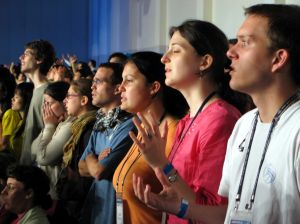
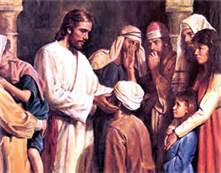

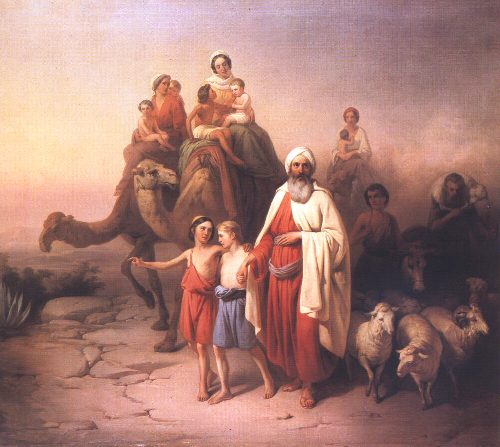
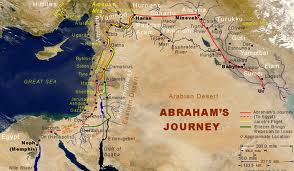



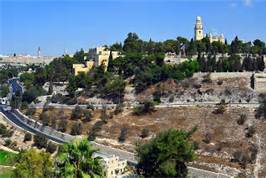



 RSS Feed
RSS Feed